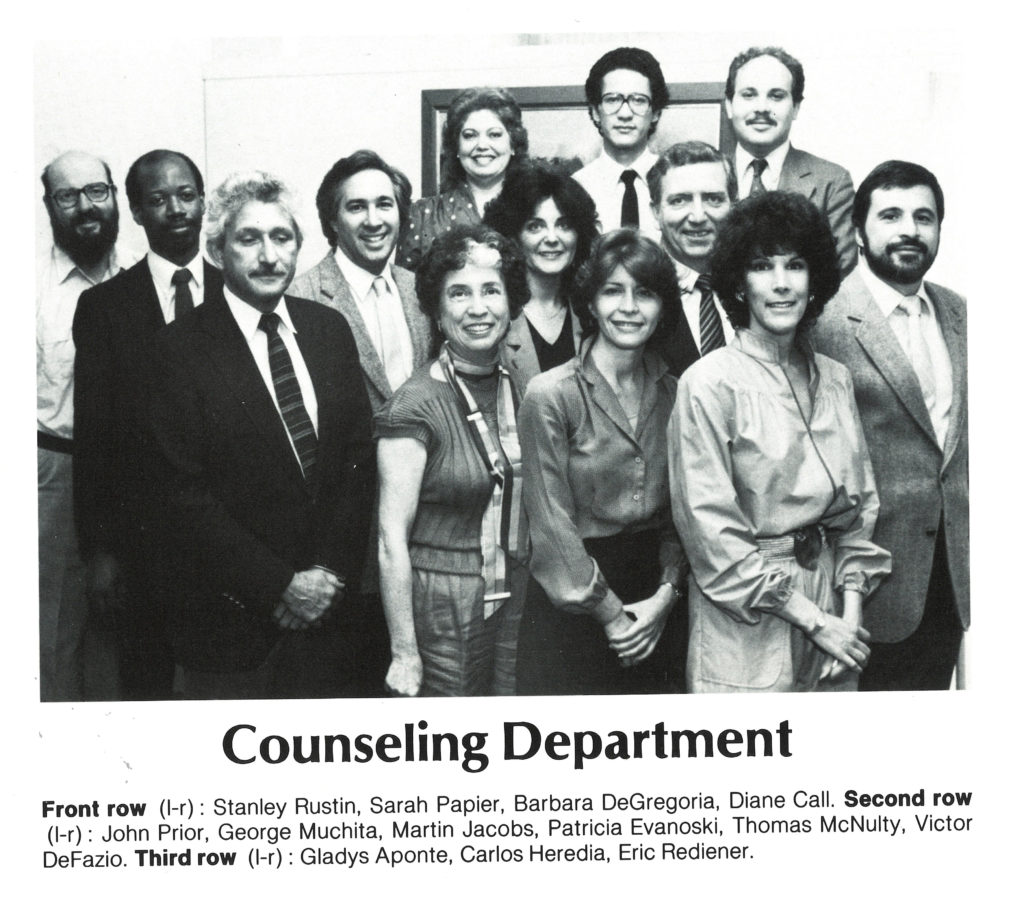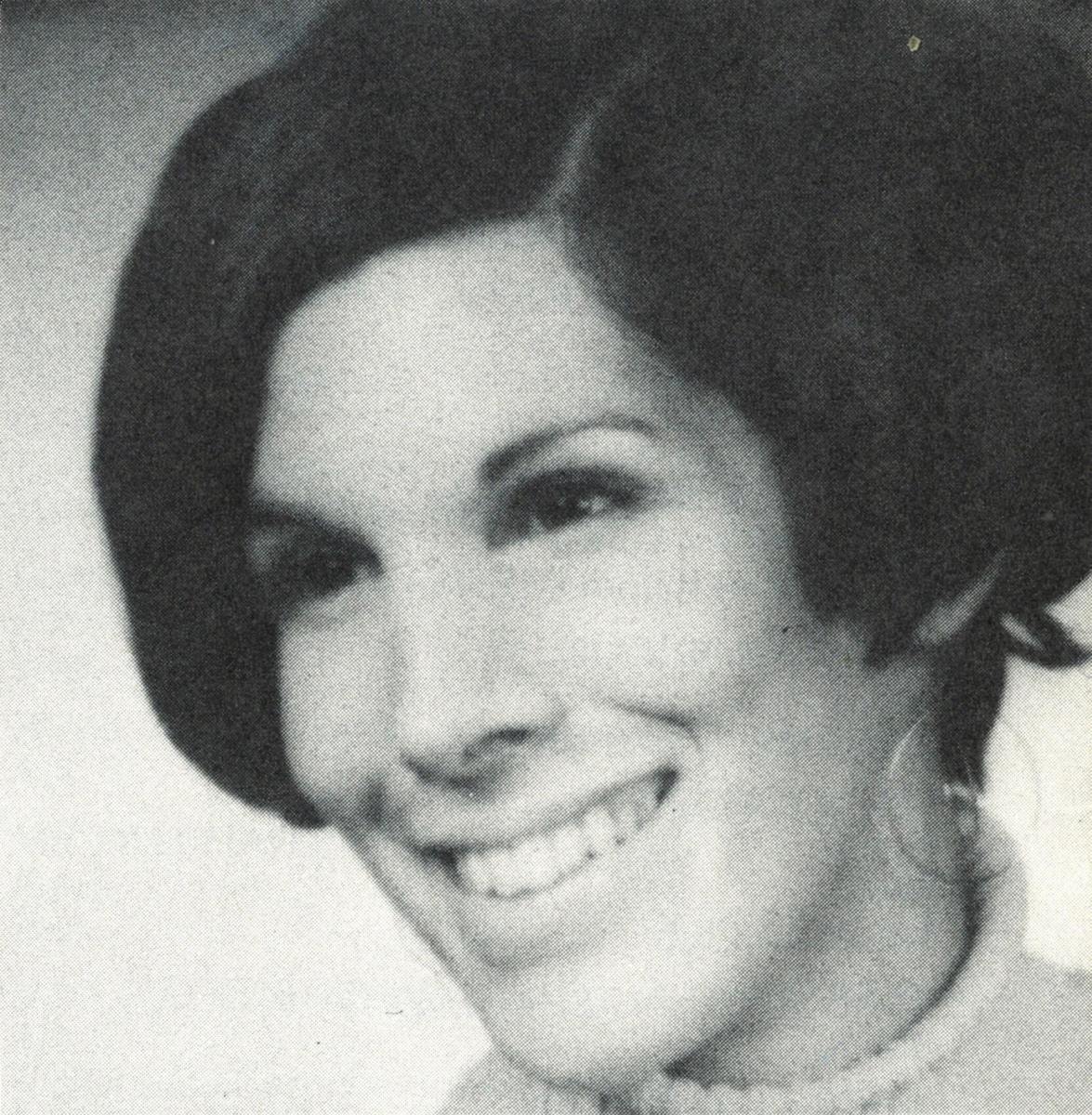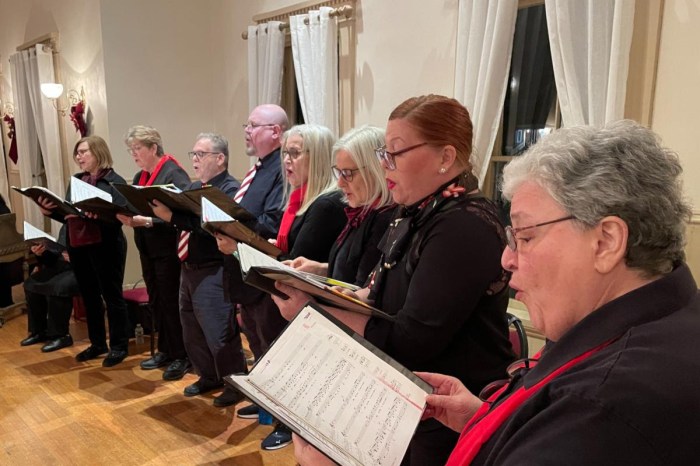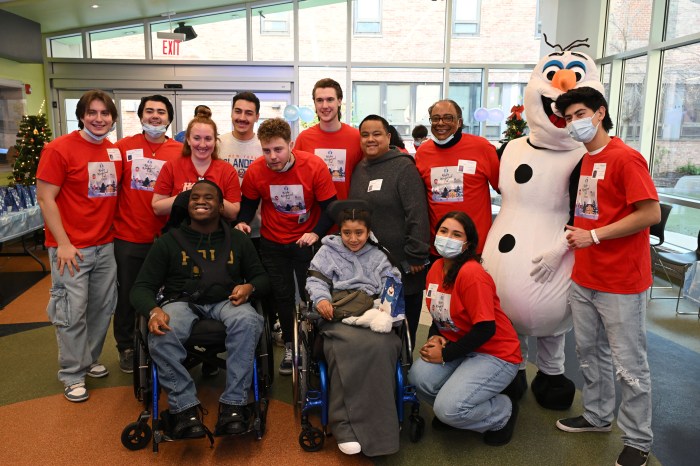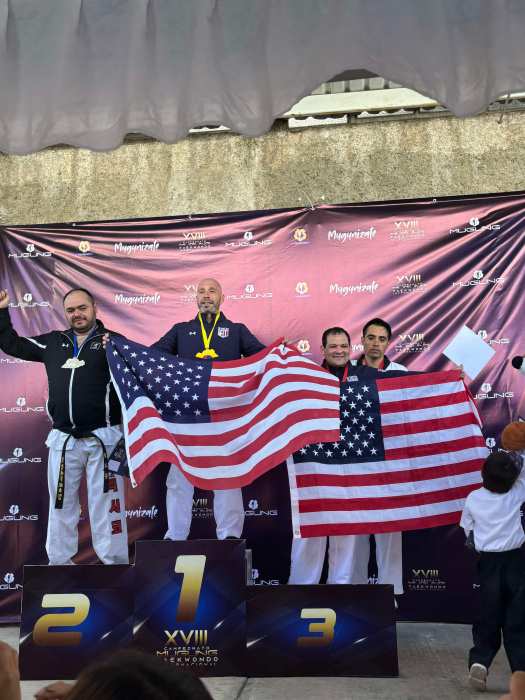SUBMITTED BY QUEENSBOROUGH COMMUNITY COLLEGE
There may not be anyone who knows Queensborough Community College better than Dr. Diane Bova Call, who retired in August after having served as President for eight years.
Dr. Call’s career at Queensborough began 47 years ago – when she arrived as an unpaid intern and a Columbia University graduate student – and, by choice, never left. Here, she discovered her passion for our students, faculty and staff – and eventually found her professional home. She worked in virtually all major areas of administration and academics and broke crucial gender barriers as the College’s first woman Provost and Senior Vice President for Academic Affairs as well as Vice President for Finance and Administration.
And, ultimately, as its first woman President.
This past spring, Dr. Call announced she would be retiring at the end of the summer. In a message to the College community she wrote, “To each of you, I thank you. Your unwavering commitment to our students and their personal and intellectual growth will always hold a special place in my heart. You have strengthened our legacy of a strong and engaged faculty, a student-centered learning environment, and of our community partnerships that have both served neighborhood organizations and businesses, and have led to countless educational experiences and career opportunities for our students.” She thanked all “who have made Queensborough the finest community college in the country.”
Due to the President’s nearly five decades-long tenure, this announcement was not entirely unexpected. Still, it was as if a pillar that held up the very foundation of Queensborough Community College would no longer be here. It is a pillar bolstered by impressive numbers. Under Dr. Call’s leadership, 80 percent of the College’s operating budget has gone directly to instructional and student support. There are more than 400 full-time faculty, 20 percent more than when she was appointed as President.
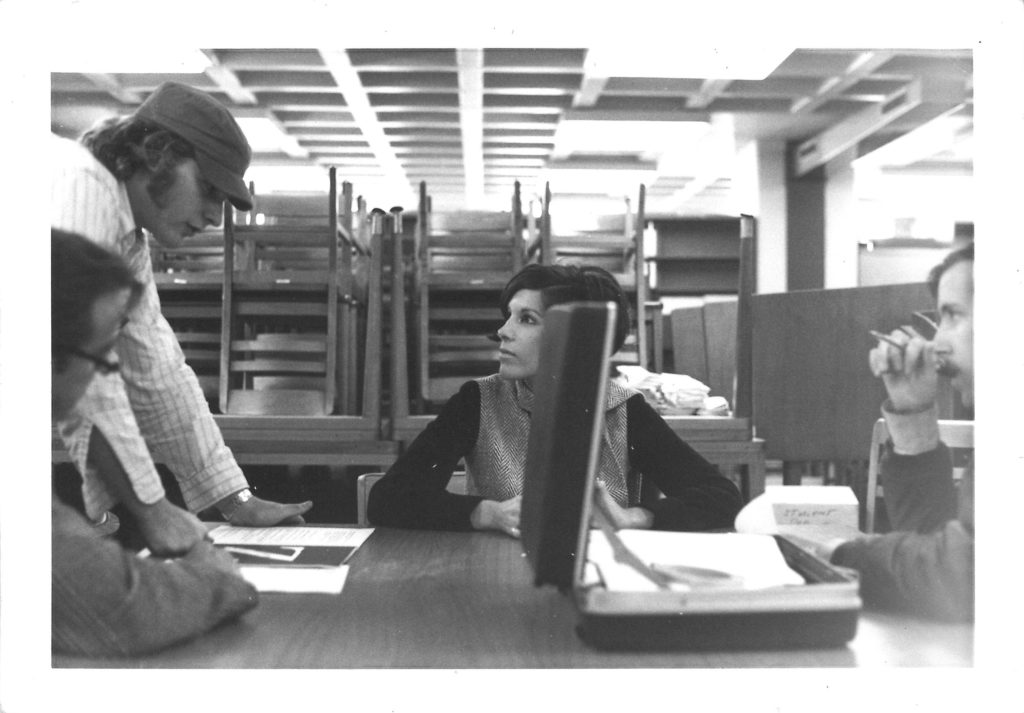
Dr. Call was appointed Interim President in 2010 and then President in 2013. Upon becoming President, she emphasized she would continue to collaborate with all faculty and staff to strengthen those cornerstones she mentioned in her farewell message. The data shows that she delivered. Currently, 83 percent of the College’s faculty hold terminal degrees, three times the national average for community colleges. Enrollment has reached a record high of over 16,000. Students, who now have connections to 129 countries and speak 78 languages, work or hold many internships in New York City for nonprofits, health care providers and businesses.
Dr. Call also made inroads on Long Island, so that the College now has relationships with more than 200 high schools, colleges, organizations and businesses in Nassau and Suffolk counties. As a result, enrollment from this area is at a record high. Annually, more than 100,000 people from the community and beyond come to events at the College’s renowned Queensborough Performing Arts Center, QCC Art Gallery and Kupferberg Holocaust Center.
To relate what Dr. Call has meant to Queensborough – and what the College has meant to her – the division of Marketing & Communications reached out to many people connected to the College who offered the following tributes. Kip Montgomery, Associate Professor and Chair of the Music Department, who has worked closely with the President for a decade, said:
“I feel like I could write a book regarding what Dr. Call has meant to me, to the Music Department, to our students, and to the College as a whole. Her contributions to everything we do at Queensborough, most especially how we educate, care for and nurture our students, have been enormous and truly incalculable in their impact on the well-being of our community.”
Not that Dr. Call’s presidency was without challenges. No college president on earth is immune to these. Dr. Call, though, started to learn how to face these challenges soon after she completed her internship and took her first position as a College staffer. She had barely begun when her supervising deans were dismissed. The action she took as a brand-new member of the College staff taught her, she now says, the value of “listening to your instincts and taking the initiative.” The lesson served her well as President.
Emily Tai, an associate professor of History, provided perspective on those challenges college presidents inevitably face. Tai has known Dr. Call for years, as both a faculty member and an officer of the Academic Senate.
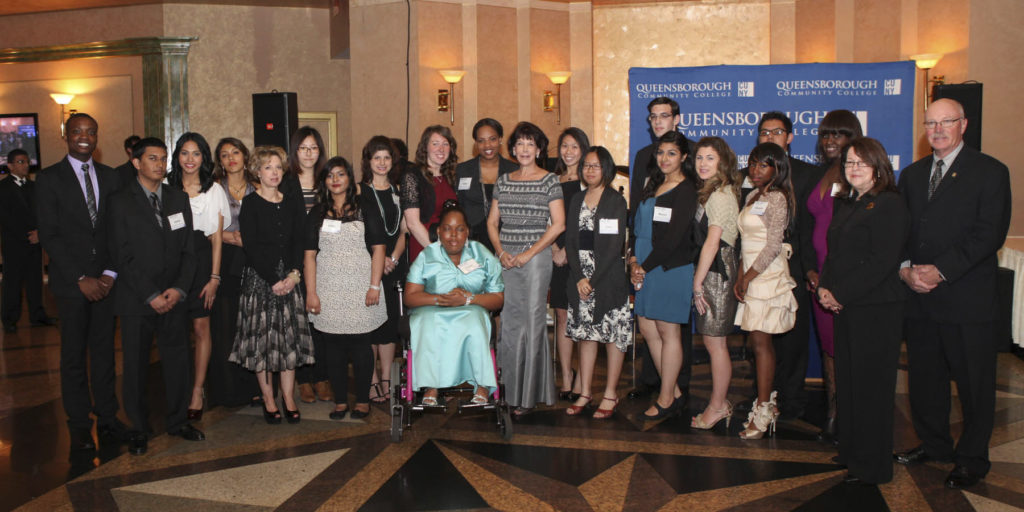
“Sometimes as a faculty governance leader it can seem that our only job is to disagree with administrators, and make their job difficult,” Tai said. “But, I was always grateful for the way President Call would seek-and find-areas of common ground, even with those individuals who might have vexed her the most-as I fear I often did!”
Today Queensborough is nationally recognized for its student-centered learning environment. When people speak about Dr. Call, they typically mention this and note that her vision for the Queensborough Academies is the capstone of her impressive academic career. Under her leadership, the Freshman Academies were expanded to serve all students, not merely first-year students. Faculty incorporate High Impact Practices and other nationally recognized pedagogical strategies into the classroom and Queensborough Academy Advisers intensively advise students, following them throughout their academic careers here, from admission to graduation, striving to insure that their courses of study are geared towards their goals and interests. All Queensborough Academic Advisers are supported by faculty and use technology and other interventions to ensure student success.
After Dr. Call announced her retirement, CUNY Board of Trustees Chairperson William C. Thompson, Jr. noted that the President has served as an “…innovator by establishing educational programs that increase student success. She has dedicated her career to building Queensborough Community College into an exemplary part of The City University of New York, for which we owe her our enduring gratitude.”
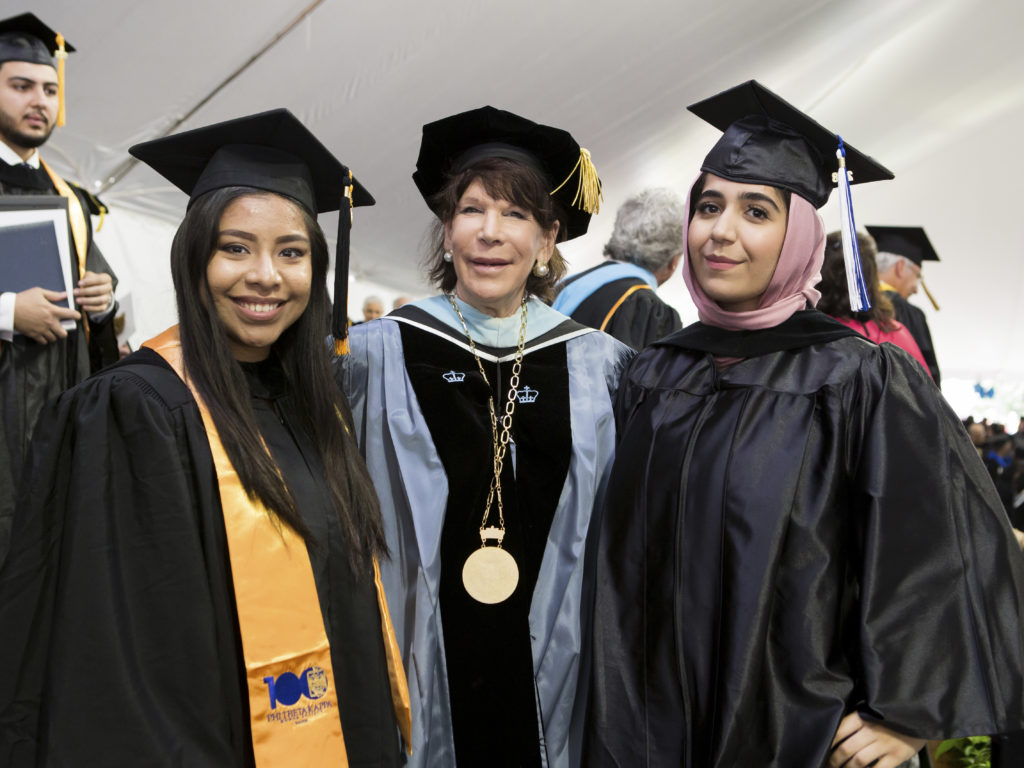
This year Dr. Call also appointed a college Advisement Council, headed by Alexandra Pyak, Program Director of the Accelerated Study in Associate Programs (ASAP). Pyak noted Dr. Call’s “tremendous support and guidance in regard to advisement…it is one of many examples of her leadership, dedication and vision.” To this Sandra A. Sacrestano, the Lead of the Liberal Arts Academy, adds that the Council, which she vice-chairs, “is a place to share ideas, best practices and challenges we all face in our effort to support student success.”
Indeed, Queensborough was recently named a top producer of Fulbright Scholars. Queensborough’s students and faculty win many prestigious grants and awards, and the College’s students excel so notably in undergraduate research that at regional events they are often mistaken for graduate students. Many now are graduate students or working in positions that require advanced degrees.
Kay Atanda, (’12), for example, was a Coca-Cola Scholar and Pearson National Prize recipient while at the College. “Dr. Call’s support throughout my academic career at Queensborough was instrumental in my success as a student and as a person. Among other things, she encouraged me to join the College’s Federal Reserve Team which helped me make new friends, expanded my professional contacts and helped me gain more access to wonderful professors who continue to inspire me today.” Kay later served as a U.S. Department of State fellow during the Obama Administration from 2014-2015, attended City College and then earned a master’s degree in International Affairs and Human Rights from Columbia University. He now works for The World Bank in Washington, D.C., as a research analyst on women’s economic empowerment issues.
Additionally, the President’s attention to the details that make the College a community are legendary.
The birthday cards she sent to all were equally celebrated, as were the congratulatory notes on achievements and the chicken soup she provided to those who were under the weather. Condolences when loved ones have passed away were often delivered in person and cherished.
Kebedech Tekleab, an assistant professor of Art and Design and a PSC-CUNY Research Grant recipient, describes attending a dinner for new faculty. She said that Dr. Call “in her graceful way of greeting guests as she moved from table to table, came to mine and expressed her sympathy in regard to a family member I had lost a few months earlier. Remembering a new faculty member has lost someone is one thing. Knowing who was lost shows a much higher level of interest in that faculty member’s well-being.”
Tekleab’s grant enabled her to study the Refugee Settlement Programs in Uganda and the related refugee crisis in the Mediterranean – then use her research to inspire her art. Before applying, she mentioned this to Dr. Call who the professor says, immediately recognized the importance of her project and supported it.
Dr. Call also made it possible for a Campus Peace Officer and the woman he met years ago, when they were both students here, to be the first couple ever to be married at the College. The ceremony took place under the Pergola on Oakland Lawn.
On June 1, Dr. Call led her final commencement. She, herself, holds a Doctor of Education degree in College and University Administration, a Master’s degree in Community College Administration and a second Master’s degree in Student Personnel Administration, all earned from Teachers College, Columbia University. Additionally, she holds a Certificate in Curriculum Development from Harvard University, School of Education.
But on the day of commencement those who earned associate degrees were again her stars – and the stars of graduation. To focus attention on the graduates, she often does not invite a speaker. “Instead, I narrate the event,” she explained.
During a recent interview in her office, Dr. Call reminisced about her own childhood.
“Both of my parents worked,” she said of those days in Westchester. “My mother dreamed of going to college and earning a CUNY degree, but that dream never became a reality. My father, Charles F. Bova, Sr., was an orphan who served in World War II.” The College’s Veteran’s Grove, which is named for the President’s father, was a gift from Dr. Call to honor him, along with those at the College who have served. A plaque on the site notes that her father was a Bronze Star Recipient, a first sergeant in the Tank Destroyer Brigade of the United States First Army – and a liberator of the Dachau concentration camp.
“When he went to war, I felt a responsibility to care for my mother – and my brother,” she said. Eventually, though, she was living her own life, in college and graduate school. And then, here at Queensborough which she referred to as “her professional home”.
“I have cared more about what is happening here – on this campus. This is not to say that I did not spend a great deal of time keeping up with the national picture, speaking to colleagues from across the country and sometimes meeting with them and presenting to them in person. But my place has been here, doing the work that needs to be done. And, for me, my work home is Queensborough Community College.”
Dr. Call has thought of Queensborough as her work home from the day she arrived at Queensborough almost five decades ago. She was in that position as an unpaid intern when she completed her first Master’s degree in Student Personnel Administration. She spoke up, asked for a full-time job and got one working with student clubs.
“I was always drawn to education and wanted to be a teacher,” she said. “After several years of teaching high school English, I decided to change my graduate school major to work in higher education. My first master’s degree required an internship at a college. Fortunately – and fortuitously – I was assigned here. Looking back on my own experience, it took me a bit of time to realize I had a career, and not simply a job. That is a lesson I try to teach every member of our campus community.”
In speaking more about that first major challenge she had at the College, Dr. Call added that she had only had a full time job for two weeks when it happened – when all her supervisors at the still-new college lost their jobs.
“It was a challenging launch,” she recalled, philosophically.
Quickly, though, she realized she should be worrying about the students. The students had also depended on these supervisory staffers to mentor them on their personal and academic growth. And now they were gone.
“The students were much older then,” Dr. Call said. “Of our 5,000 students, more than 2,500 were military veterans, including those who had served in Vietnam. I knew I had to do something so they wouldn’t feel abandoned, so I went to work the next day, a Saturday. No big deal. I didn’t like weekends. I liked going to work.”
“I remember that the students were sitting on the floor, as they did then – and still do. I sat down on the floor with them. I wanted them to feel comfortable speaking with me. I wanted to reassure them and help them to discuss their plans for the future. I wanted to try to instill a sense of security in them. This was a difficult time, but not only for this one department in our College. It was a difficult time for the nation as well, and many of these students had recently returned home from fighting a war – an unpopular war. They needed support.” It is the same kind of strong support she continued to give to students, staff and faculty who are veterans today; she did this in concert with maintaining the Grove in their honor.
Dr. Call looked wistful, as she told this story about her first challenge back then. “That was when I first began to learn about the College’s moving parts and how they connect.” Then quickly, she returned to the present. “By the way, I like weekends now,” she said confidently with a smile. She is someone leaving a job well done.
Dr. Call left with the knowledge that she has mentored many faculty, staff and students – and that among her students are those who either stay to work here or return to do so. “I am so proud of a student who began as a Tech Fee intern in our Academic Computing Center and now mentors other people,” she said. Tech Fee is a program she initiated as Vice President for Finance and Administration to provide students – all of whom commute – with a convenient hands-on learning/work experience at the College.
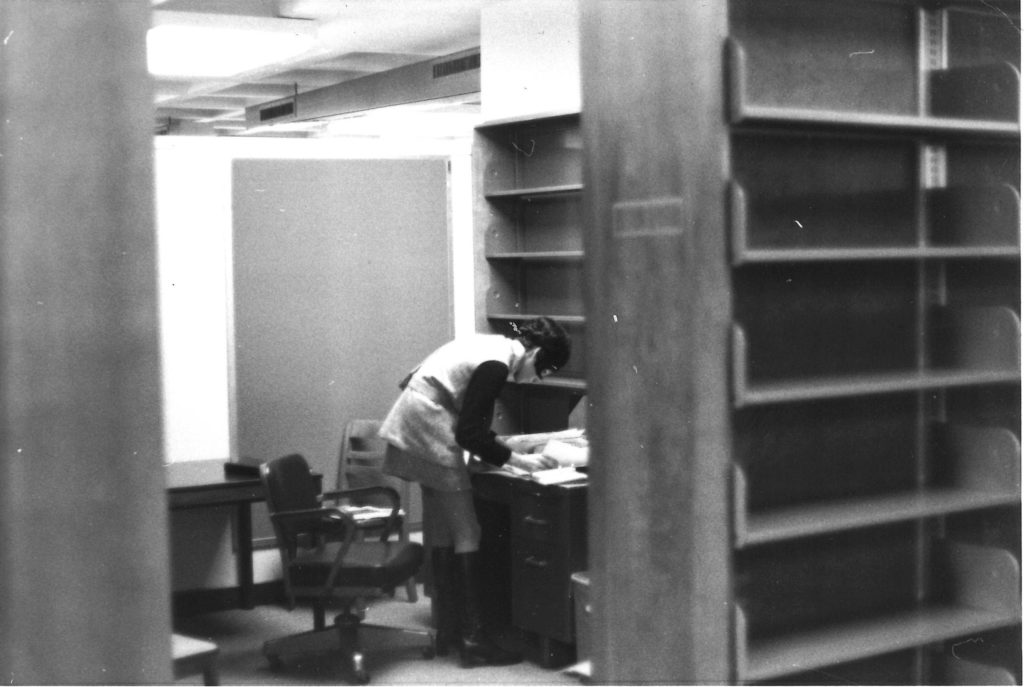
“And then there is Lucy Shi,” Dr. Call continued, speaking with pride about another alum, who now also works here. “Lucy is a Risk Management and Finance Manager. Her passion for her work is deeply rooted in her connection to our community.”
“My family moved here from Sydney, Australia in 2002,” Shi said recently. “It was right after my high school graduation. I didn’t know how long I would be staying so I decided to enroll in a two-year college, so that if I returned to Australia, I would already have an Associate Degree instead of worrying about transferring credits back.”
Like a number of individuals who have known Dr. Call a long time, Shi affectionately refers to her as “Dr. Diane.”
“It was spring 2005 when I met Dr. Diane,” Shi continued. “She was then Vice President for Finance and Administration. I was the Administrative Vice President of the Student Government Association, a math tutor and a College Assistant in the Accounting Department. The President was very involved with the student government and we often met weekly. I saw a mentor in her and soon she became my go-to person whenever I needed advice on something, whether it was about my career or academics. I kept in close touch with her after graduation. In 2010 I was working as an accountant for AIG when the economic crisis hit. I needed a way out. Luckily, Queensborough was hiring. I ran back to Queensborough and continued to advance my career.”
Shi said, “Dr. Call was a guardian angel to many. She took me right under her wing. She gave me the wisdom and confidence to show my potential to others. She also encouraged me to get involved in our community. I am a member of numerous committees and one of the most important ones I have been on is Affirmative Action. I am proud to have served on over 30 search committees.”
It is impossible to mention Dr. Call without noting her own elegant style and the influence she has had on the campus. It is beautiful – and well-stocked with comfortable gathering places for students to study and collaborate, including the new Science Atrium. “The campus is just gorgeous,” agreed Anne Marie Menendez, professor and chair of the Nursing Department. “When I go elsewhere, I can’t wait to get back here. I love to show it to colleagues from other schools, as well.”
Menendez, echoing the comments of other chairs, also discussed how Dr. Call has supported her department and its students. Both she and Alexandra Tarasko, a nursing professor, noted that Dr. Call appreciated the particular needs the nursing department has for supplies. And also that it is important to keep the Department’s Simulation Laboratory current. (A simulator for birthing, the department’s first, will arrive soon). The professors also noted that Dr. Call came to every luncheon and candle lighting ceremony for graduates, always prepared with details about the students’ lives, studies and aspirations.
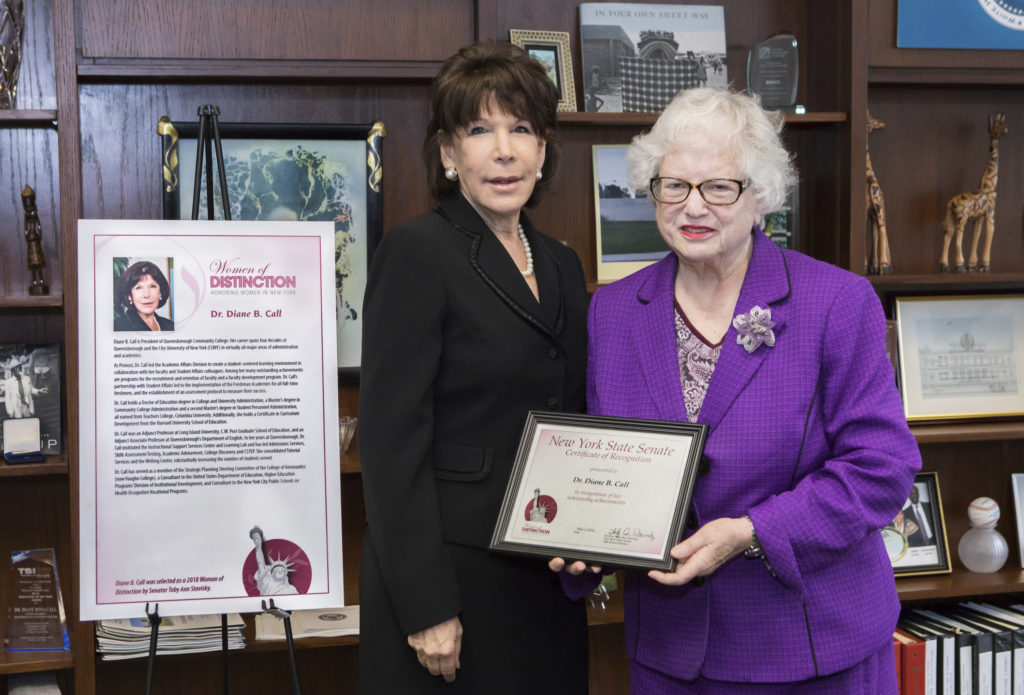
They added that when Lorraine Cupelli, an assistant nursing professor, collaborated on a project with the Kupferberg Holocaust Center, Dr. Call brought her and a student to describe it to the Center’s board. The study addressed cultural competency – and sensitivity – so needed by nurses today. It also discussed the value of nursing students’ interviews with elderly Jewish Holocaust survivors on “their cultural views of health, illness and death.” The proximity of the campus’ Holocaust Center, the study said, made it ideal as a “nontraditional clinic site.”
The Kupferberg Holocaust Center, the QCC Art Gallery and Queensborough’s Performing Arts Center (QPAC), are the arms of the College that both serve students and draw in members of the community. Dr. Call’s support of this has been keenly felt. She emphasized that all three are “learning laboratories,” due to the work they do with both the College’s students and the community.
Susan Agin, who has been the Executive and Artistic Director of QPAC for almost 15 years, noted that the center is “thriving, touching thousands and inspiring many, due to Dr. Call’s vision that student resources should extend far beyond books alone.” Agin said that when Dr. Call attended events at QPAC “the artists performed just a bit better when they knew she was watching.” The director added that “community members are also happy to be able to thank her for her support of the arts, in person.”
Assistant Professor Azadeh Aalai, a social psychologist who was a National Endowment for the Humanities Fellow at the Holocaust Center, said that Dr. Call’s “passion in serving the community and developing programs for our students was very apparent and visible in all the work that she did.”
Dr. Call characteristically prefered to speak about all the work others have done. “A few weeks ago I tried jotting down things that happen in a day,” she said. “But I had to stop because the list grew too long. But it did contain so many wonderful, unexpected surprises. For example, I visited our Flushing Center, where we teach construction workers about OSHA regulations – in Mandarin. What is constant here is the solid commitment of faculty and staff to students and to others who avail themselves of the education we provide.”
On the subject of fundraising, Dr. Call expressed a humanistic point of view.
“Our donors are investors,” she said. “People learn how their investments impact students in small ways and large ways. We need the investment from donors to insure student success. I think I have raised an awareness of the extraordinary institution we are. The money is important but we need believers. We need people who can offer our students internships, people who can offer them jobs. It is not just writing a check. It is believing in what we do. This is why we always put our students and alumni front and center at board meetings, at our Partners for Progress Gala. We want donors and potential donors to see the impact of their investments.”
Among those who spoke at this year’s Gala was Paola Beniquez, a student who has been flying back periodically to Puerto Rico to help her family members. Their life was upended by Hurricane Maria. Paola flew back and forth while pursuing her art and design studies and gaining acceptance to Pratt Institute in the fall. Beniquez is also a champion of the College’s women’s volleyball team, and was one of three first year students in the country to win a “Player of the Year” award. Other students who spoke included Mabely Salvador, an immigrant from El Salvador, the first in her family to go to college. She is also Student Government President and plans to study psychology at Queens College. Another speaker, Kyle Chin-How, (’15) an immigrant from Guyana, won a prestigious Jack Kent Cooke Foundation Undergraduate Transfer Scholarship. He participated in a White House Internship and graduated from the Skadden Arps program at City College in 2017.
As the interview drew to a close, Dr. Call paused and remembered an international trip she took about twenty years ago. Another passenger on her flight, a venture capitalist, asked her what she did for a living. “I told him that I was an educator, a college administrator. ‘Oh, he said. ‘We are in the same line of work. We both believe in people.’”
Dr. Call offered one final thought:
“When I see Queensborough, I see a community. Not just buildings but people. I see something that is really strong, really beautiful and something that represents dreams for everyone. For me, it was, starting as that unpaid intern-to have been given the opportunity and to have achieved. I am so proud of our students, faculty and staff who have also achieved. I was blessed. I cannot express how much I believe in student success. I believe in a community that collaborates to turn dreams into reality.”
